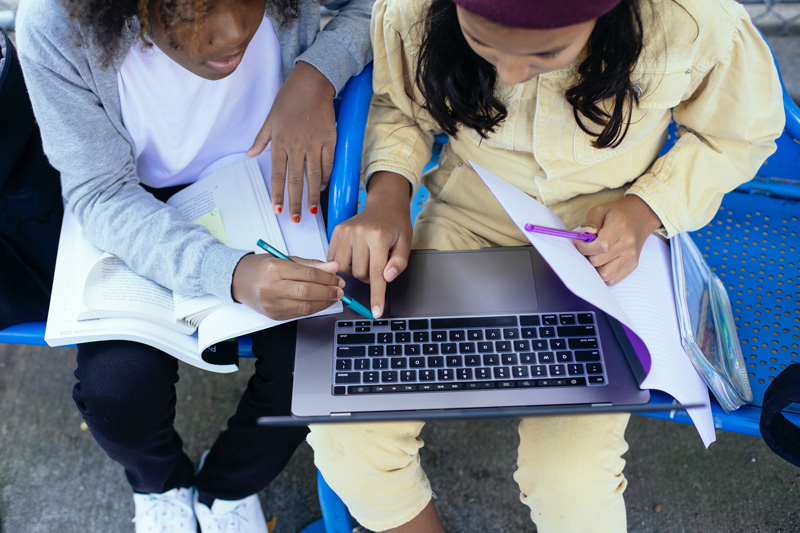
Laura Hakimi
If you follow current debates about relationships between technology, learning and young people, you’d be forgiven for feeling conflicted and, at times, bewildered.
We hear of the chronic underfunding in state education, the teaching profession in crisis, and unmanageable workloads that call for a greater role for technological solutions in saving teachers’ time and money. We hear of a digital skills shortage, in which school leavers have not acquired the digital skills necessary to participate in the UK’s increasingly tech-driven economy. We hear of the transformative potential of AI, and particularly generative language technologies, to reconfigure relationships between teachers, pupils and information, and to change the very purpose of what (and how) our pupils learn during their time at school. We hear warnings of the risks presented by bias in algorithmic systems that, without us realising, shape our interactions and identities, and we hear growing concerns about data privacy and regulation that relate to the rights and protections of an increasingly digitised childhood.
These discussions, however hypothetical, have important material consequences: Edtech company Chegg expressed uncertainty about its outlook against the rising popularity of viral chatbot ChatGPT, and this almost immediately reduced the company share price by 47% (Reuters, May 2023).
Gillian Keegan, Secretary of State for Education, heralded AI, and its potential to mark pupils’ work, generate lesson plans and detect plagiarism, as an obvious solution to the growing pressures on teachers in secondary schools (Evening Standard, May 2023).
“Bewildered” by the fast pace of development in AI, a group of school leaders have set up a body of advise and protect schools the risks of AI, citing fears around the capacity of chatbots such as ChatGPT to aid cheating, concerns about the impact on children’s mental and physical health, and lack of trust in tech firms to protect the interests of pupils and teachers (The Guardian, May 2023)
These claims and conjecture, that permeate our techno-cultural milieu, have enormous societal influence: they shape social media noise, drive company share prices, creep into political debate and raise questions about the very nature of our children’s education. At the same time, these debates can detract from the important points of difference in young peoples’ educational experiences. We are increasingly aware of historical and post-pandemic patterns of digital inequality, which mean learners can experience different layers of digital disadvantage according to geography, gender, race, language or disability.
If we are to find new ways to navigate the shifting socio-technical terrain that can support equitable outcomes for young people, we need to understand our starting point. We need to take into account the current everyday realities of using technology in the classrooms of today’s secondary schools. What challenges constrain technology use? What sort of pedagogical, administrative or economic decision making takes place around devices and software inside (and outside) the classroom? What influences teachers’ classroom pedagogies, and, crucially, how do these affect different learners’ experiences, in different localities and circumstances? And, how can technologies, with their increasingly powerful data-driven capabilities, renegotiate the relationships between teachers and learners?
At present, the fine-grained, context-specific interactions between secondary school pupils, teachers, technologies and learning remain little understood. An ethnographic approach offers a pathway to a more nuanced understanding of these everyday socio-technical realities. Long-term, situated observations, field notes, informal conversations, interviews, combined with some digital methods, can offer a deeper understanding of experiences and local practices. Ethnography can uncover experiences, knowledge and perspectives that other methods miss out, because of its real-world focus and flexible approach. It can give a voice to perspectives that have been marginalised or overlooked, and it can uncover the unintended consequences of changes to practice.
If we have a clearer understanding of these everyday realities, we might be in a better place to reimagine more equitable educational futures.